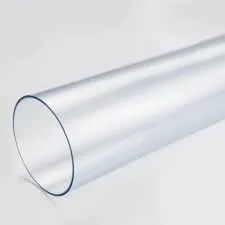డిసెం . 05, 2024 07:01 Back to list
HDPE Pipe Solutions for Durable and Efficient Culvert Installations
Understanding HDPE Culvert Pipe A Sustainable Solution for Infrastructure
High-Density Polyethylene (HDPE) culvert pipes are becoming increasingly popular in modern civil engineering and construction projects. These pipes offer a range of benefits that make them ideal for various applications, particularly in drainage systems, roadways, and agricultural settings. This article will explore the properties, advantages, and applications of HDPE culvert pipes, highlighting their role in sustainable infrastructure development.
What is HDPE?
High-Density Polyethylene is a thermoplastic polymer made from petroleum. Known for its high strength-to-density ratio, HDPE is versatile and durable, making it an excellent choice for various construction materials, including pipes. HDPE is resistant to impact, corrosion, and environmental stressors, which positions it as a reliable option for underground and above-ground applications.
Properties of HDPE Culvert Pipe
HDPE culvert pipes come in various diameters and lengths, making customization easier depending on the project’s requirements. Some key properties of HDPE culvert pipes include
1. Durability HDPE culvert pipes have a long service life, often exceeding 50 years, under proper conditions. Their resistance to cracking and weathering ensures that they maintain structural integrity over time.
2. Corrosion Resistance Unlike traditional materials like concrete and metal, HDPE is not susceptible to corrosion caused by moisture or chemicals in soil and water. This resistance minimizes maintenance costs and extends the lifespan of the infrastructure.
3. Lightweight HDPE pipes are significantly lighter than their concrete or metal counterparts, making transportation, handling, and installation much easier and less labor-intensive.
4. Flexibility The flexibility of HDPE allows it to withstand ground movement and shifting, making it suitable for various environments, including areas with shifting soil conditions.
5. Smooth Interior Surface The smoothness of HDPE reduces friction and promotes better flow rates for drainage applications. This efficiency in water flow can help mitigate flooding and manage stormwater effectively.
Advantages of HDPE Culvert Pipes
hdpe culvert pipe

1. Cost-Effectiveness Although the initial investment in HDPE culverts may be higher than traditional materials, the long-term savings on maintenance, repair, and replacement significantly outweigh the initial costs.
2. Environmental Benefits HDPE is recyclable, reducing waste and the overall environmental impact of construction projects. The manufacturing process of HDPE pipes also minimizes emissions and energy use compared to traditional materials.
3. Installation Efficiency The lightweight nature of HDPE culvert pipes allows for faster and easier installation, which can lead to reduced labor costs and shorter project timelines.
4. Versatility HDPE culvert pipes can be used in various applications, from rural drainage systems to urban stormwater management and agricultural runoff control. Their adaptability makes them suitable for diverse climates and terrains.
Applications of HDPE Culvert Pipe
HDPE culvert pipes are commonly used in several applications
1. Road and Highway Drainage They are often installed under roads and highways to manage water runoff effectively, preventing flooding and erosion.
2. Bridge Drainage Systems In bridge construction, HDPE culverts are used to channel water under the bridge, reducing the risk of scouring and structural damage.
3. Agricultural Drainage Farmers utilize HDPE pipes in field drainage systems to improve soil quality and manage excess water, thus enhancing crop yields.
4. Stormwater Management Many municipalities are incorporating HDPE culverts into stormwater management systems to control flooding and maintain the natural water cycle.
Conclusion
HDPE culvert pipes represent a significant advancement in construction and engineering solutions, offering durability, cost-effectiveness, and environmental benefits. As the demand for sustainable infrastructure continues to rise, HDPE pipes are likely to play a crucial role in the future of civil engineering projects. Their adaptability across various applications underscores their importance in effective water management and sustainable development practices.
-
PVC Transparent Sheet Roll - Durable & Flexible PVC Plastic Sheet Roll for Industrial & Home Use
NewsJun.24,2025
-
High-Quality PVC PPR Pipes and Fittings Durable ERA PPR Solutions
NewsJun.10,2025
-
High-Quality Large HDPE Sheets & Large Diameter PVC Pipe Durable Large PVC Pipe Supplier
NewsJun.10,2025
-
High Density Polyethylene Cutting Board - Durable & Food Safe
NewsJun.09,2025
-
3 Inch PVC Pipe for Durable Irrigation Affordable & Reliable
NewsJun.09,2025
-
Premium PPR Plastic Water Pipe Fittings - Durable & Leak-Free
NewsJun.09,2025

